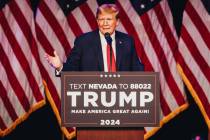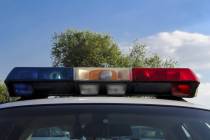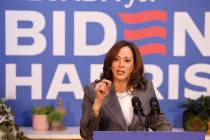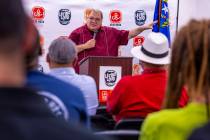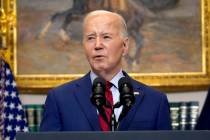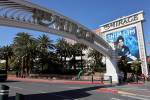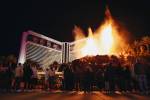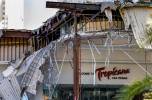Officials rethink security
NEW YORK -- Shortly after news spread that gun-toting terrorists had launched a deadly siege on Mumbai, 75 blue-and-white police cars, lights flashing and carrying 150 officers, fanned out across Manhattan.
Their mission: To quickly shore up security with a show of force outside the Waldorf Astoria, New York Palace and other marquee hotels.
The response, though strictly precautionary, demonstrated that the deadly attack in India had far-reaching implications for police and private security officials in New York and other U.S. cities.
"I think that this could be a wake-up call," said Robert Grenier, a former CIA official with the Kroll Security Group.
Some suspect the Mumbai attackers had inside help, which points to the need for aggressive screening and monitoring of hotel workers, Grenier said. The assault in India probably involved extensive reconnaissance, another lesson in the need for constant vigilance in spotting and confronting suspicious visitors, he said.
Security on the Strip heightened after the Sept. 11, 2001, terrorist attacks on New York and Washington, D.C.
Measures such as security checkpoints at hotel parking garages were instituted. But as the years passed, some of the heightened activities were relaxed to a degree.
Security experts have viewed Las Vegas, with 135,000 hotel rooms and home to some of the world's largest and most expensive hotel-casinos, as a potential terrorism target.
Often, the U.S. Department of Homeland Security sends notifications that are simply reminders to be alert, especially during holidays and busy times. In such notifications, the agency cites no specific targets or evidence.
Harrah's Entertainment spokesman Gary Thompson said the casino operator received that type of notice Nov. 25, the day before the terrorist attacks in India. He said the company "beefed up" security awareness at its eight Strip casinos over the four-day Thanksgiving weekend.
MGM Mirage spokesman Alan Feldman said the terrorist attacks in India caused the casino operator to increase security at its Las Vegas casinos over the holiday weekend. The company operates 10 casinos on the Strip including Bellagio, MGM Grand, Mandalay Bay and The Mirage.
MGM Mirage reinstituted searches of some cars entering the company's casino parking garages. Feldman said the decision had nothing to do with a direct threat on any of the company's properties.
"Internally, it was something we chose to do," Feldman said. "It was a big holiday weekend, and with what happened in India, we chose to elevate our security status."
Las Vegas Sands Corp. spokesman Ron Reese said that security is always a company focus and that he was not aware of the company taking any extraordinary security steps over Thanksgiving at its Venetian and Palazzo resorts.
Hotels face a balancing act.
"We have some guests who pay an exorbitant amount to stay in our hotels, and security is a level of inconvenience," said Jimmy Chin, who heads security at the New York Palace and leads the security committee for the Hotel Association of New York. But after Mumbai made headlines, "there's an expectation to see security," he added.
The attacks in India have been a hot topic in Chicago's hotel industry, said Kevin Boland, a marketing manager at the city's Drake Hotel.
The 535-room Drake, a landmark city hotel, reviewed its security measures in the wake of the attacks and "realigned" some security staff, Boland said.
"Like what happened in India, we don't want to be in the situation of where we weren't prepared," he said. "People can get bogged down in paperwork, and what happened (in India) can change your priorities."
In Los Angeles, police have been studying the Mumbai attacks and are considering sending investigators there to learn more.
"We look at these new kinds of tactics and the way they orchestrated this and modify our approach," said Deputy Chief Michael Downing, who leads the Los Angeles Police Department's counterterrorism unit.
Police in New York and Los Angeles have programs to share intelligence and security tips with businesses, including hotels, through Web sites, closed-door briefings and seminars. The NYPD has beefed up patrols outside big hotels since the India attack.
Unlike fortified hotels in international trouble spots, the U.S. hotels have not resorted to heavily armed guards, checkpoints or other drastic measures to deter terrorism. Besides what is visible -- plainclothes security agents and surveillance cameras -- chains are reluctant to give specifics about their security.
Asked about any additional safeguards at the Hilton-operated Waldorf Astoria in midtown and the Millennium Hilton across from ground zero in lower Manhattan, the chain said only that it always makes safety a priority.
"Further, many of the actions we are taking are, of necessity, invisible to our customers," it said in a statement.
It's unlikely that any hotel, no matter how exemplary its security, could fend off a Mumbai-style attack on its own, said John Serafini, co-owner of Elite Protection, an Illinois-based security firm that counts several Chicago hotels as clients.
"As far as engaging an armed assault as the one in India, I don't know if anyone is fully prepared to repel an attack on that scale," he said.
Las Vegas Review-Journal writer Howard Stutz contributed to this report.








